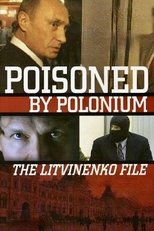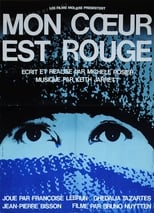André Glucksmann
¿Quién es André Glucksmann?
Glucksmann began his career as a Marxist, but went on to reject communism in the popular book La Cuisinière et le Mangeur d'Hommes (1975), and later became an outspoken critic of the Soviet Union and post-Soviet Russian foreign policy. He was a strong supporter of human rights. In later years he opposed the claim that Islamic terrorism is the product of the clash of civilizations between Islam and the West.
André Glucksmann was born in 1937 in Boulogne-Billancourt, the son of Ashkenazi Jewish parents from Austria-Hungary. His father was from Czernowitz in northern Bukovina, which later became part of Romania and is now in Ukraine, and his mother from Prague, which later became the capital of Czechoslovakia.
Glucksmann's father was killed in World War II, and his mother and sister were active in the French Resistance. The family "narrowly escaped deportation to the camps" during the Holocaust, which influenced Glucksmann's developing ideas of "the state as the ultimate source of barbarism".
He studied at the Lycée la Martinière in Lyon, and later enrolled at École normale supérieure de Saint-Cloud. His first book, Le Discours de la Guerre, was published in 1968.
In 1975 he published the anti-Marxist book La Cuisinière et le Mangeur d'Hommes - subtitled Réflexions sur l'État, le marxisme et les camps de concentration, in which he argued that Marxism leads inevitably to totalitarianism, tracing parallels between the crimes of Nazism and Communism. In his next book Les maitres penseurs, published in 1977 and translated into English as Master Thinkers (Harper & Row, 1980), he traced the intellectual justification for totalitarianism back to the ideas articulated by various German philosophers such as Fichte, Hegel, Marx, and Nietzsche. In the years of the Vietnam War, Glucksmann rose to national prominence after expressing his support for Vietnamese boat people. He began working with Bernard-Henri Lévy criticizing Communism. Both had formerly been well known Marxists. Shortly afterwards they became known, along with others of their generation who rejected Marxism, as New Philosophers, a term coined by Lévy.
In 1985, Glucksmann signed a petition to President Reagan urging him to continue his support for the Contras in Nicaragua. After the fall of the Berlin Wall, Glucksmann became an advocate for the use of nuclear power. In 1995 he supported the resumption of nuclear tests by Jacques Chirac. He supported the NATO intervention in Serbia in 1999. He also called for Chechnya to become independent.
In his book Dostoyevsky in Manhattan, Glucksmann asserts that nihilism, particularly as depicted by Dostoyevsky in his novels Demons and The Brothers Karamazov, is the 'characteristic form' of modern terrorism. Drawing on Ivan Karamazov's dictum that "If there is no God, everything is permitted", Glucksmann argues that: "The inner nature of nihilistic terrorism is that everything is permissible, whether because God exists and I am his representative, or because God does not exist and I take his place." ...
Source: Article "André Glucksmann" from Wikipedia in English, licensed under CC-BY-SA 3.0.
Trabajos destacados
Géneros más habituales en las películas de André Glucksmann
Géneros más habituales en las series de André Glucksmann
Compañeros de trabajo recientes de André Glucksmann
Las imágenes y retratos de actores y actrices mostrados en este sitio web son obtenidos de la base de datos pública de The Movie Database (TMDb), utilizada bajo los términos y condiciones de dicha plataforma. En caso de que alguna imagen o fotografía sea incorrecta, ofensiva, o pueda infringir derechos de imagen o copyright, puede ser editada o eliminada directamente en TMDb. Esto provocará su eliminación automática en este sitio web. Adicionalmente, si usted desea solicitar la eliminación de una imagen directamente en nuestro sitio web, puede utilizar el formulario de contacto ubicado al pie de la página. Atenderemos su solicitud de manera expedita y tomaremos las medidas necesarias para garantizar el cumplimiento de los derechos aplicables.
The images and portraits of actors and actresses displayed on this website are sourced from the public database The Movie Database (TMDb), used in accordance with its terms and conditions. If any image or photograph is incorrect, offensive, or may infringe image rights or copyright, it can be edited or removed directly on TMDb. This will automatically result in its removal from this website. Additionally, if you wish to request the removal of an image directly from our website, you may use the contact form located at the bottom of the page. We will promptly address your request and take the necessary measures to ensure compliance with applicable rights.




